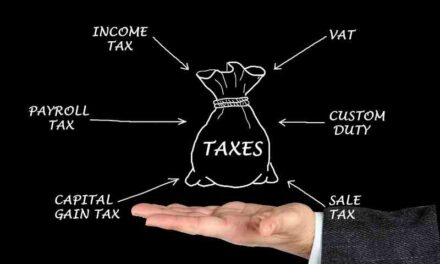Globalization has led to the integration of economies around the world, resulting in increased trade, investment, and cross-border flow of goods and services. This has created a need for global taxation policies to address the challenges and opportunities presented by globalization. Taxation and globalization are inextricably linked, and this blog will explore the challenges and opportunities presented by globalization for taxation.
Challenges of globalization for taxation
One of the significant challenges of globalization for taxation is the issue of tax competition. As countries compete for foreign investment, they often offer lower tax rates to attract multinational corporations. This has led to a race to the bottom, where countries lower their tax rates to compete with other nations. This reduces the revenue generated by taxes and hinders the ability of governments to fund public services and infrastructure projects.
Another challenge is the problem of tax evasion and avoidance. Multinational corporations use complex structures and transfer pricing to shift profits to low-tax jurisdictions, reducing the amount of tax they pay. This practice results in revenue loss for governments and undermines the fairness of the tax system.
The digital economy has also posed a significant challenge to taxation. With the rise of e-commerce and digital platforms, it has become easier for companies to operate in multiple jurisdictions without a physical presence. This has made it difficult for tax authorities to tax these companies, resulting in a revenue loss for governments.
Opportunities presented by globalization for taxation
Globalization also presents opportunities for taxation. One of the opportunities is the potential for increased revenue from taxation. As economies become more integrated, the volume of cross-border trade and investment increases, resulting in more taxable transactions. This can increase the revenue generated from taxes, which can be used to fund public services and infrastructure projects.
Globalization also presents an opportunity for international cooperation on taxation. The rise of global organizations such as the OECD and the G20 has led to increased cooperation on tax matters. These organizations have developed guidelines and standards for international taxation, which can help to reduce tax competition and ensure a fairer tax system.
The digital economy has also presented an opportunity for taxation. The OECD has developed a framework for taxing the digital economy, which seeks to ensure that companies pay tax in the jurisdictions where they generate profits. This can help to address the issue of tax evasion and avoidance and increase the revenue generated from taxation.
Conclusion
In conclusion, globalization has presented both challenges and opportunities for taxation. Tax competition, tax evasion, and the digital economy are significant challenges for taxation but increased revenue, international cooperation, and the potential for taxation of the digital economy present opportunities.
To address the challenges and take advantage of the opportunities presented by globalization, there is a need for international cooperation on tax matters and the development of global taxation policies that promote fairness, sustainability, and economic growth. Only through cooperation can we ensure that taxation keeps pace with the challenges and opportunities presented by globalization.

Meet Krishnaprasath Krishnamoorthy, a finance content writer with a wealth of knowledge and experience in the insurance, mortgage, taxation, law, and real estate industries.





